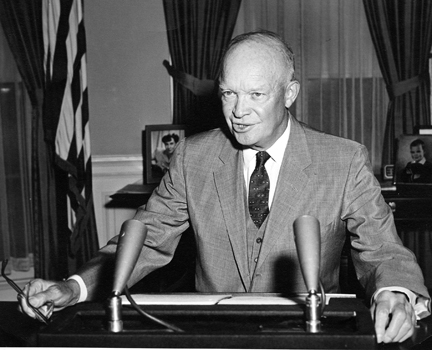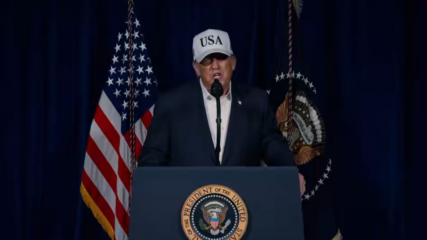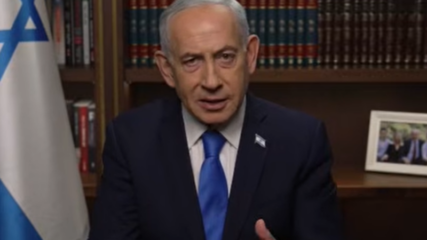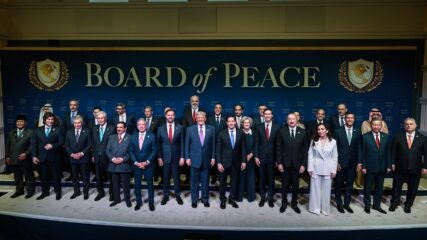February 20, 1957
In a nationally televised address to the American people, President Dwight Eisenhower discusses the situation in the Middle East in the aftermath of the October 1956 Suez war. The president emphasizes the need for Israel to abide by U.N. resolutions on withdrawal from Sinai and the Gaza Strip. The speech comes amid high U.S.-Israeli friction while Israel delays its withdrawal while seeking rights and guarantees from the international community and the United States.
In early November 1956, the U.N. General Assembly, with support from both the United States and the Soviet Union, passed a series of resolutions calling for a ceasefire and a troop withdrawal from Sinai. Britain and France, which planned and executed the October 1956 military action with Israel, withdrew their forces in December 1956. Israel withdrew troops from most areas, with the exceptions of the Gaza Strip and the area around the Straits of Tiran.
Prime Minister David Ben-Gurion seeks international assurances regarding freedom of navigation to the port of Eilat and preventing an Egyptian military buildup in Gaza. Despite his November pledge for a full withdrawal, Ben-Gurion gains Knesset support for his refusal to authorize a complete withdrawal.
On February 11,just weeks after his second inauguration, Eisenhower delivered a memorandum to the government of Israel that outlined U.S. policies after an Israeli withdrawal. The memo was released to the public February 17.
In his February 20 address, Eisenhower says, “We are approaching a fateful moment when either we must recognize that the United Nations is unable to restore peace in this area, or the United Nations must renew with increased vigor its efforts to bring about Israeli withdrawal.”
The full transcript of the Eisenhower speech is available here. An audio excerpt of the address is available here.
Eisenhower’s strong stance results in several days of debate in the Knesset, as well as increased negotiations between Israel and the United States. On March 1, after receiving a U.S. guarantee for Israel’s right of passage through the Straits of Tiran and a U.N. agreement to station emergency forces in Sinai, Israeli Foreign Minister Golda Meir announces at the United Nations that Israel will withdraw from all the territories.
In May 1967 those U.N. monitors are forced to withdraw by Egyptian President Gamal Abdel Nasser, knowing that war is approaching. Nasser remilitarizes Sinai, resulting in Israel’s decision to pre-emptively strike Egyptian forces that threaten Israel and its oil supply routes to Eilat.









